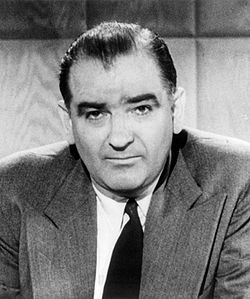This is your morning Open Thread. Pour your favorite beverage and review the past and comment on the future.
Find the past “On This Day in History” here.
February 10 is the 41st day of the year in the Gregorian calendar. There are 324 days remaining until the end of the year (325 in leap years).
On this day in 1937, Roberta Flack is born in Black Mountain, North Carolina, and was raised in Arlington, Virginia.
During her early teens, Flack so excelled at classical piano that Howard University awarded her a full music scholarship. She entered Howard University at the age of 15, making her one of the youngest students ever to enroll there. She eventually changed her major from piano to voice, and became an assistant conductor of the university choir. Her direction of a production of Aida received a standing ovation from the Howard University faculty. Flack is a member of Delta Sigma Theta sorority and was made an honorary member of Tau Beta Sigma by the Eta Delta Chapter at Howard University for her outstanding work in promoting music education.
Flack became the first African-American student teacher at an all-Caucasian school near Chevy Chase, Maryland. She graduated from Howard University at 19 and began graduate studies in music, but the sudden death of her father forced her to take a job teaching music and English for $2800 a year in Farmville, North Carolina.
Flack then taught school for some years in Washington, DC at Browne Junior High and Rabaut Junior High. She also taught private piano lessons out of her home on Euclid St. NW. During this period, her music career began to take shape on evenings and weekends in Washington, D.C. area night spots. At the Tivoli Club, she accompanied opera singers at the piano. During intermissions, she would sing blues, folk, and pop standards in a back room, accompanying herself on the piano. Later, she performed several nights a week at the 1520 Club, again providing her own piano accompaniment. Around this time, her voice teacher, Frederick “Wilkie” Wilkerson, told her that he saw a brighter future for her in pop music than in the classics. She modified her repertoire accordingly and her reputation spread. Subsequently, a Capitol Hill night club called Mr. Henry’s built a performance area especially for her.
When Flack did a benefit concert for the Inner City Ghetto Children’s Library Fund, Les McCann happened to be in the audience. He later said on the liner notes of what would be her first album “First Take” noted below, “Her voice touched, tapped, trapped, and kicked every emotion I’ve ever known. I laughed, cried, and screamed for more…she alone had the voice.” Very quickly, he arranged an audition for her with Atlantic Records, during which she played 42 songs in 3 hours for producer Joel Dorn. In November 1968, she recorded 39 song demos in less than 10 hours. Three months later, Atlantic reportedly recorded Roberta’s debut album, First Take, in a mere 10 hours. Flack later spoke of those studio sessions as a “very naive and beautiful approach…I was comfortable with the music because I had worked on all these songs for all the years I had worked at Mr. Henry’s.”
Flack’s version of “Will You Still Love Me Tomorrow” hit number seventy-six on the Billboard Hot 100 in 1972.
Flack’s Atlantic recordings did not sell particularly well, until Clint Eastwood chose a song from First Take, “The First Time Ever I Saw Your Face”, for the sound track of his directorial debut Play Misty for Me; it became the biggest hit of the year for 1972 – spending six consecutive weeks at #1 and earning Flack a million-selling gold disc. The First Take album also went to #1 and eventually sold 1.9 million copies in the United States. Eastwood, who paid $2,000 for the use of the song in the film, has remained an admirer and friend of Flack’s ever since. It was awarded the Grammy Award for Record Of The Year in 1973. In 1983, she recorded the end music to the Dirty Harry film Sudden Impact at Eastwood’s request.
Flack soon began recording regularly with Donny Hathaway, scoring hits such as the Grammy-winning “Where Is the Love” (1972) and later “The Closer I Get to You” (1978) – both million-selling gold singles. On her own, Flack scored her second #1 hit, “Killing Me Softly with His Song” written for Lori Lieberman in 1973. It was awarded both Record Of The Year and Best Pop Vocal Performance, Female at the 1974 Grammy Awards. Its parent album was Flack’s biggest-selling disc, eventually earning Double Platinum certification.
In 1999, a star with Flack’s name was placed on Hollywood’s Walk of Fame. That same year, she gave a concert tour in South Africa, to which the final performance was attended by President Nelson Mandela.
In 2010, she appeared on the 52nd Annual Grammy Awards, singing a duet of “Where Is The Love” with Maxwell.
Flack is also a spokesperson for the American Society for the Prevention of Cruelty to Animals; her appearance in commercials for the ASPCA featured The First Time Ever I Saw Your Face.

 I saw
I saw  On this day in 1950,
On this day in 1950,
Recent Comments